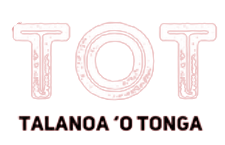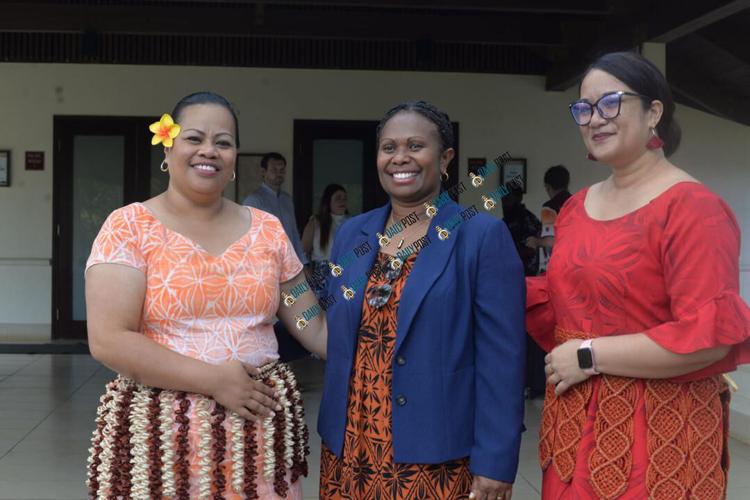Vanuatu is setting a new benchmark in the Pacific for the successful reintegration of returning workers through its innovative Labour Mobility Reintegration Strategy.
Commissioner of Labour in Vanuatu, Murielle Metsan Meltenoven, affirmed that the country is currently leading this reintegration strategy with the ongoing V-LAB program. This year, Vanuatu is in its third cohort, which includes 50 workers—40 from Port Vila and 10 from Santo.
Commissioner Meltenoven made this statement yesterday during the opening of the two-day Vanuatu Reintegration Exposure Workshop at Warwick Le Lagon in Port Vila. The workshop was attended by representatives from Pacific countries and Timor-Leste, all of whom are involved in sending workers to Australia and New Zealand.
“The Vanuatu Labour Mobility Reintegration Strategy workshop is an opportunity for the sending countries in the Pacific to come together with Vanuatu and Timor-Leste to share best practices on how to support our workers when they return to the country with remittances or their income, and how we can assist them to set up their businesses,” she said.
“The opportunity of reintegration with V-LAB is really to support our workers in setting up a business in whatever industry they choose, whether in agriculture, tourism, or another sector. It’s a great opportunity to help workers think outside the box and build sustainable livelihoods for their families in the long term.”
She noted that when workers exit the Labour Mobility program, they need an exit strategy. That is why they place emphasis on the reintegration mechanisms and expansion currently in place.
The Minister of Internal Affairs, who oversees the Vanuatu Labour Mobility program, Andrew Napuat, said Vanuatu was the first country in the Pacific to send seasonal workers to New Zealand in 2007. Since then, it has remained one of the largest sending countries for migrant workers to both New Zealand and Australia.
He acknowledged that labour migrants and their families have benefited meaningfully from the opportunity to work overseas. Similarly, he believes that Australia and New Zealand also benefit from employing Vanuatu workers, describing it as “a win-win situation for both the sending and receiving countries.”
“The benefits for Vanuatu are most evident in terms of development outcomes across the country, particularly in the economic sector. For example, remittances to Vanuatu amounted to more than 15% of GDP in 2023, up from less than 2% before 2010,” said Minister Napuat.
“In addition to these financial gains, our workers acquire new skills whilst working overseas as they are exposed to different working environments. As a result of their overseas experience, workers return to Vanuatu and may use their finances and new skills to improve their family’s welfare, contribute to community initiatives, start entrepreneurial businesses, and gain the confidence to seek new social experiences, friends, and connections.”
However, there are challenges that workers and their families may experience during overseas employment or upon their return to Vanuatu during reintegration. The Minister noted that these challenges may include family relationship issues due to prolonged separation, as well as the absence of key family and community members to support household and community needs in Vanuatu.
“There may also be limited understanding of financial literacy, how to make joint family financial decisions, and how best to send remittances home,” he said.
“Additionally, there may be reintegration challenges due to limited access to social, educational, or health support and services for returnees and their families, especially in the outer islands.
“To fully understand the reintegration context in Vanuatu, several issues and opportunities need to be taken into consideration. That is why we are here today: to ensure that the Labour Mobility Reintegration Strategy for Vanuatu is based on the needs of our returning workers, their families, their communities, and the overall socio-economic context of Vanuatu.
“I hope today marks the beginning of strong partnerships and coordination across all relevant stakeholders in Vanuatu and other Labour Sending Units (LSUs) in the Pacific Island nations. It is an opportunity to share best practices and lessons learned on how, together as a Pacific Family, we can strengthen and expand our reintegration strategies to add value to the Labour Mobility ecosystem.”
The Reintegration Workshop was supported by the Australian Government and the International Organisation for Migration (IOM). Program Manager of IOM Vanuatu, Nissara Spence, said they are delighted to support the Government in developing its first National Labour Mobility Reintegration Strategy.
“Reintegration is particularly important in the context of Labour Mobility. A lot of effort has been made to support pre-departure, but one of the key gains from Labour Mobility is reintegration,” she said.
Spence added that they are happy to provide technical assistance to the Government and look forward to working with all stakeholders on implementation in the future.
Source: Vanuatu Daily Post




